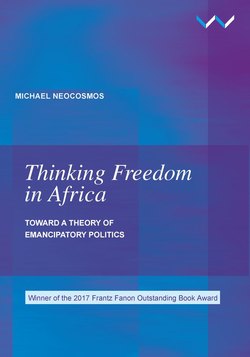Читать книгу Thinking Freedom in Africa - Michael Neocosmos - Страница 17
На сайте Литреса книга снята с продажи.
ОглавлениеChapter 5
The People’s Power mode of politics in South Africa, 1984–1986
The people shall govern!
– The Freedom Charter, 1955
The people have formed these area committees, so that they can try to control themselves.
– An activist from the Eastern Cape, Isizwe, March 1986
RETHINKING THE SOUTH AFRICAN LIBERATION STRUGGLE
Having shown at some length the features of the National Liberation Struggle (NLS) mode of politics, I now wish to assess how it was transcended in South Africa in the 1980s. I will outline the new popularly based subjectivities which saw the light of day in that decade and will argue that the period 1984–6 witnessed an event (in Badiou’s sense of the term) in South Africa. This event gave birth to a new mode of politics for the 21st century in Africa, which can be called the People’s Power mode of politics, one that was revived in 2011 in North Africa. I will suggest that the People’s Power mode in South Africa inaugurated a frankly new way of thinking emancipatory politics for the 21st century, which has attempted to overcome some of the limitations of the NLS mode on the continent.
Throughout this chapter, the struggle for liberation in South Africa is considered within an African context, as illustrative of and not exceptional to an African experience, for it also occurred, although to a more limited extent, in Nigeria, Congo-Zaire and elsewhere and ultimately resulted in the formation of liberal-democratic state systems in most of the continent. This form of state became both the norm and a condition for the spread of neo-liberal capitalism in Africa. South Africa is, after all, probably the most consistently politically neo-liberal of African countries, at least in the eyes of empire, which regularly sets it up (along with Botswana and Mauritius) as a model for the continent. What was optimistically named the ‘second independence’ of the continent was not born exclusively of the neo-colonial imposition of neo-liberal economic policies; it was also, and primarily in South Africa, the result of mass popular movements which, for a while at least, challenged the dominance of capitalist hegemony and its attendant state modes of rule. Given that this period is occluded today, it is imperative to provide an assessment of it, especially as it produced a number of political innovations of universal significance.
